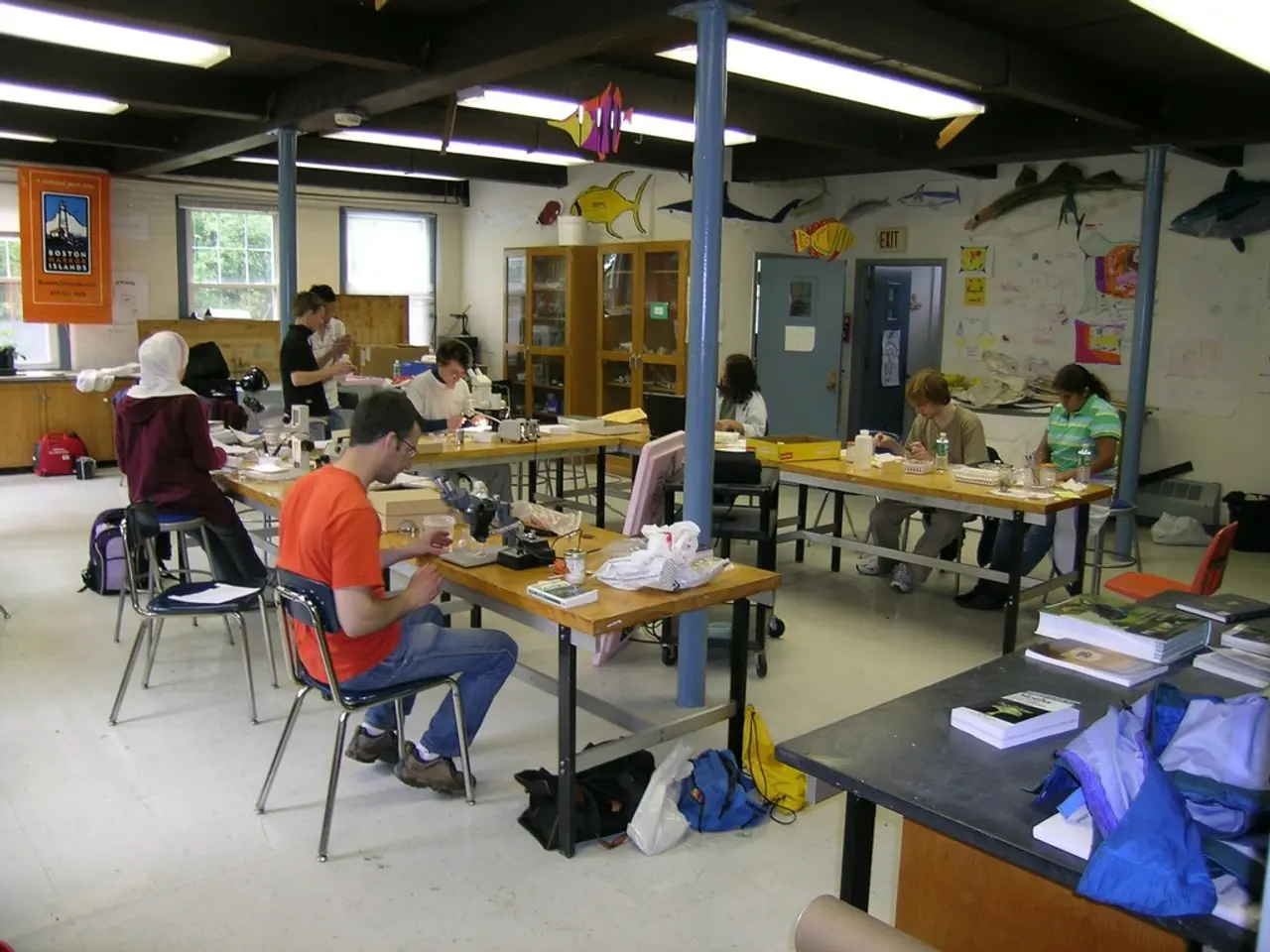Partners' Policies Under Fire from President's Tariff Actions Expansion
In the midst of President Trump's second term, trade relations have become a significant focus, with the implementation of new tariffs on various countries and commodities.
**Brazil, Canada, and Mexico**
On March 4, 2025, a 25% tariff was imposed on imports from Canada and Mexico after a one-month delay. This move is in line with President Trump's "America First" trade policy, which uses tariffs as a means to protect U.S. workers and renegotiate trade terms. The administration views these measures as crucial to counteract foreign economic influence, particularly from China, which has significantly increased its investment and trade ties with Latin America over the past two decades.
**Other Countries and Commodities**
U.S. trade partners have responded in kind. In early 2025, tariffs on U.S.-origin goods escalated rapidly, reaching as high as 125% ad valorem by April, with the additional 125% tariff scheduled to be removed by May 14, 2025. President Trump has announced plans to raise reciprocal tariff rates to 15–20% starting July 10, 2025. In response, several countries have already implemented or plan retaliatory tariffs on a broad range of U.S. exports, including agricultural products, energy commodities, and industrial inputs. This has led to a complex web of escalating and sometimes temporary tariffs on both sides.
**Delayed Retaliatory Measures**
Some U.S. trade partners, such as the European Union, have temporarily delayed imposing retaliatory tariffs in hopes of reaching negotiated settlements. However, the overall trend points to an increasingly fragmented global trading system, with unpredictable and rapidly changing tariff schedules.
**Effects on the U.S. Economy Beyond Trade Disputes**
The escalation of tariffs has had far-reaching effects on the U.S. economy. Supply chains have been disrupted, particularly for critical minerals and agricultural exports. For example, export controls on rare earth elements and other industrial materials introduce uncertainty for U.S. manufacturers reliant on these imports.
Sector-specific impacts are also evident. The agriculture sector faces higher tariffs on key exports, reducing their competitiveness in major markets. The energy sector, with its reliance on exports of coal, crude oil, and natural gas, may also see reduced revenues and domestic investment due to retaliatory tariffs. Manufacturing industries could experience increased production costs due to disruptions in the supply of rare earths and industrial minerals.
**Domestic Economic Policy and Geopolitical Rivalry**
The Trump administration's tariff strategy is designed to strengthen the U.S. industrial base and protect American jobs. However, the immediate effect has been to increase costs for both consumers and businesses reliant on imported goods, and to provoke reciprocal actions that can hurt U.S. exporters.
The administration's focus on countering Chinese influence in Latin America reflects broader concerns about geopolitical competition, with trade policy increasingly tied to national security and strategic objectives.
**A Fresh Voice in Trade Discussions**
Analyst Vance Ginn, an advisor during the first Trump presidency, has recently expressed hopes for a more harmonious trade environment. Ginn advocates for quick implementation of trade deals and lower trade barriers for the U.S. economy, believing that lower trade barriers are better for the U.S. economy. He also suggests that basic economics would suggest not raising tariffs and letting the markets work. Ginn looks forward to numerous agreements, treaties, and accommodations in trade and expresses hope for more certainty in the economy soon.
The new tariffs are facing skepticism from critics, but Ginn's statements suggest a focus on making trade fair and beneficial for the U.S. He also indicates a desire for quick resolution of trade disputes and a focus on the positive impact of lower trade barriers on the U.S. economy.
In addition to tariffs related to trade disputes, President Trump has also implemented new tariffs over issues unrelated to trade, such as the dispute with Colombia over repatriation flights. As the trade landscape continues to evolve, the long-term economic impact of these policies will become increasingly clear.
- The escalating tariffs, coupled with President Trump's policy-and-legislation, have resulted in a complex web of war-and-conflicts between the United States and its trade partners, as they retaliate with their own tariffs on general-news commodities like agricultural products, energy commodities, and industrial inputs.
- The discourse on trade, underscored by President Trump's "America First" policy and the ensuing tariffs, has significantly influenced politics, fuelling a daunting landscape of trade-related war-and-conflicts that also transcends into policy-and-legislation, affecting domestic economic policy and geopolitical rivalry on a broader scale.







